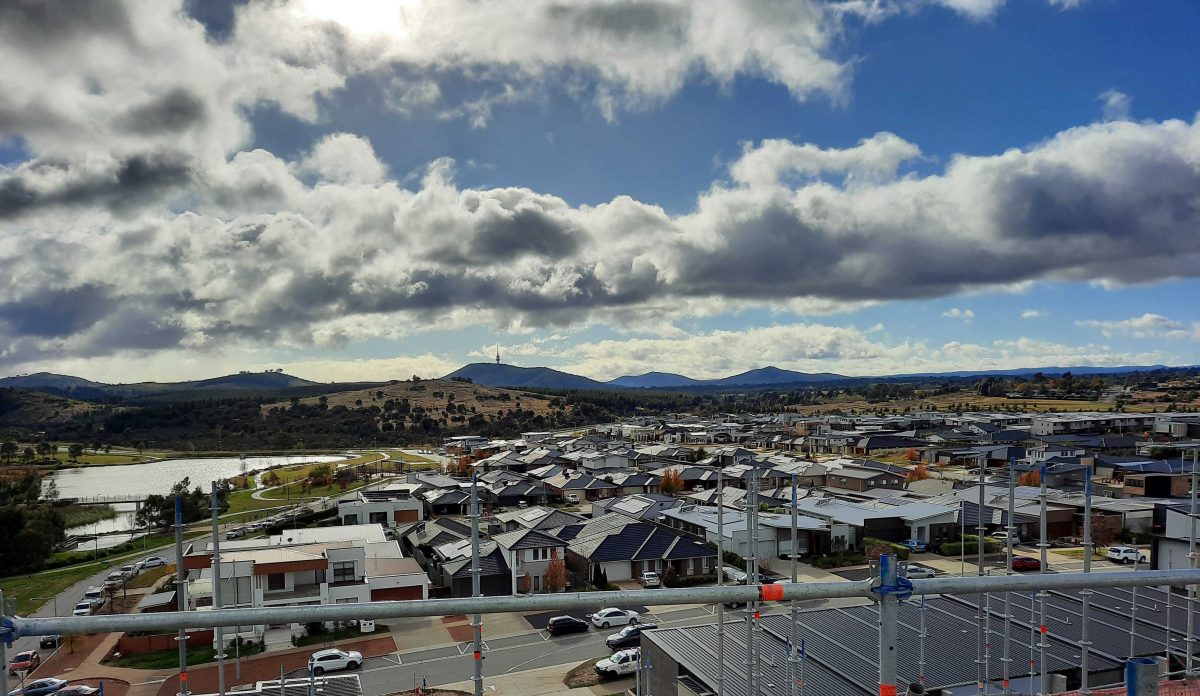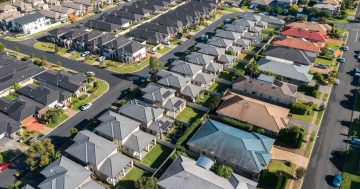
When it comes to stamp duty reform, NSW Treasurer Matt Kean and ACT Treasurer (and Chief Minister) Andrew Barr are on the same page. Photo: Screenshot/Lottie Twyford.
When the NSW state budget was handed down this week, it contained policies that may have sounded familiar to Canberrans.
That’s because NSW – a Liberal-run state – has plans to completely overhaul its property tax system in ways that are not so dissimilar to a program of reform the ACT’s Labor-Greens Government first embarked on more than a decade ago.
The two states are now the only jurisdictions in the country intent on replacing stamp duty with land tax.
What’s changed in NSW for first home buyers?
From next year, eligible first home buyers purchasing a property up to $1.5 million can opt out of paying stamp duty and instead opt-in to paying an annual fee of $400 plus 0.3 per cent of the land value.
While the changes only impact first home buyers, NSW Treasurer Matt Kean described the change as a “first step” in “testing the waters” of stamp-duty reform – an indication that more is to come.
“It will mean more NSW residents will get into their first home at an earlier age and achieve the great Australian dream of home ownership,” Mr Kean said of the reform.
It’s believed around 55,000 people a year would be able to benefit from the scheme.
The current first home buyer stamp duty exemption for properties less than $650,000 will remain in place and the duty for properties between $650,000 and $800,000 will continue to fall.

The ACT Government has been on a mission to reform stamp duty for a decade. Photo: Ian Bushnell.
What does the ACT have on offer for first-home buyers?
Offers are already sweeter for first home buyers in the ACT, with most completely exempt from paying duty if the property costs less than $1 million.
If the purchase price exceeds that, the buyer pays reduced duty.
What else has the ACT done to stamp duty?
Earlier this year, the government removed stamp duty from off-the-plan property purchases up to $600,00, following moves last year to exempt similar purchases up to the value of $500,000.
This was for all purchasers – not just first home buyers.
But it’s been working on abolishing what Mr Barr often calls an “inefficient tax” for much longer than that.
The government’s 20-year-tax reform plan began in 2012. By the time it’s done, there will be no duty on property transfers at all.
Residential stamp duty rates have been falling since then, replaced instead with increases to rates – although these increases were capped for five years following the COVID-19-induced economic shutdown.
An analysis conducted in 2020 showed the reform had been roughly revenue-neutral over its first seven years, helped to achieve a more efficient and competitive economy, and contributed to a fairer tax system.
Rate rises have been the battleground on which the last three ACT elections were fought, with the Canberra Liberals ultimately being defeated at each one.
What does the NSW Government want to do to stamp duty in the long run?
NSW Premier Dominic Perrottet has been pushing for a move away from duty since he was treasurer.
Initially, Mr Perrottet floated a plan where 80 per cent of homes across the state would have had the option of paying an annual land tax and all buyers – regardless of whether they were first home buyers or not -would have been eligible.
So the current reforms in that state fall a long way short of what he wanted. He’d previously blamed the Commonwealth government for their failure to come to the table, conceding he needed its support.
But it is likely there will be further announcements in this space.
This is despite the fact the NSW Opposition – the Labor Party – is up in arms about the latest plan, accusing the government of charging families an annual tax that would last forever.
Why don’t (ACT) governments like stamp duty?
According to the ACT Government:
- Duty is inefficient: it influences people to make less optimal decisions about housing.
- Duty is inequitable: it is only paid by the small part of the community that buys properties.
- Duty is an unstable source of revenue as the level of revenue depends on the property market.
- Duty is also a significant financial barrier for first home buyers.
According to the Canberra Liberals, people also don’t like paying higher rates.
Original Article published by Lottie Twyford on Riotact.










